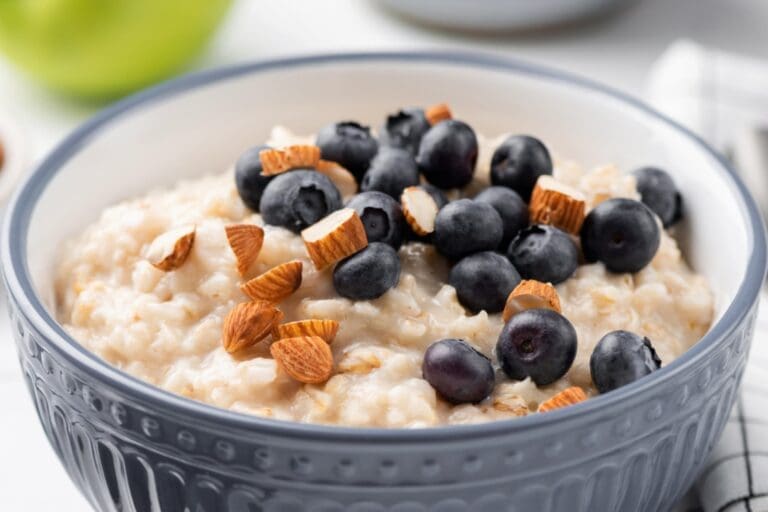As a personal trainer in San Mateo, I often get asked about the role of omega-3s in nutrition and fitness. Clients are curious about how these essential fatty acids can improve their overall health and fitness goals. It is not surprising that omega-3s have gained a lot of attention in recent years, due to the numerous benefits they have on the body. In this blog post, I will delve into the science behind omega-3s and provide evidence-based information on how they can improve cardiovascular health, reduce inflammation, improve muscle function and recovery, aid in weight loss, and promote mental well-being. Furthermore, I will also provide recommendations for incorporating omega-3s into your diet and the potential benefits of taking supplements like fish oil or krill oil.
Omega-3 fatty acids are a type of polyunsaturated fat that is essential for human health. These fatty acids are considered “essential” because our body cannot produce them on its own, and they must be obtained through our diet or supplements. There are three main types of omega-3s: EPA (eicosapentaenoic acid), DHA (docosahexaenoic acid), and ALA (alpha-linolenic acid). EPA and DHA are mostly found in fatty fish such as salmon, tuna, and mackerel, while ALA is found in plant-based sources such as flaxseed, chia seeds, and walnuts.
One of the most well-known benefits of omega-3s is their impact on cardiovascular health. Studies have shown that consuming omega-3s can lower the risk of heart disease by reducing inflammation, blood pressure, and triglycerides. A meta-analysis published in the Journal of the American Medical Association found that consuming EPA and DHA from fish oil supplements can reduce the risk of heart disease by up to 30%. Additionally, omega-3s have been found to improve the function of the endothelial cells that line the blood vessels, which can improve blood flow and reduce the risk of clots.
Another area where omega-3s have been shown to be beneficial is in reducing inflammation. Inflammation is a natural response to injury or infection, but chronic inflammation can lead to a host of health problems such as arthritis, cancer, and heart disease. Omega-3s have been found to modulate the body’s inflammatory response by reducing the production of pro-inflammatory compounds called cytokines. This can lead to a reduction in pain and stiffness associated with conditions such as rheumatoid arthritis.
In terms of fitness, omega-3s have been shown to improve muscle function and recovery. They do this by reducing inflammation, which can cause muscle soreness and fatigue. A study published in the Journal of the International Society of Sports Nutrition found that omega-3 supplementation improved muscle strength and endurance in healthy adults.
Another study published in the Journal of Sports Medicine and Physical Fitness found that omega-3s improved muscle recovery after exercise. The study participants who took omega-3s had less muscle soreness and damage compared to those who did not take the supplement. These findings suggest that incorporating omega-3s into your diet can help you get the most out of your workouts and achieve your fitness goals.
Weight loss is another area where omega-3s have been found to be beneficial. A study published in the Journal of the Academy of Nutrition and Dietetics found that people who took omega-3 supplements lost more weight than those who did not. The study participants also had a reduction in body fat and an increase in muscle mass. This suggests that omega-3s can help you lose weight by improving your body composition and increasing muscle mass. Finally, omega-3s have been found to improve mental health. They have been shown to reduce symptoms of depression and anxiety and improve cognitive function. A study published in the Journal of Clinical Psychiatry found that people with major depressive disorder who took omega-3 supplements had a greater reduction in symptoms compared to those who took a placebo.
In conclusion, omega-3s are an important nutrient that can have a significant impact on overall health and fitness. As a personal trainer in San Mateo, I always recommend that my clients include sources of omega-3s in their diet, whether it’s through eating fish or taking a supplement. Fish oil or krill oil supplements are a great alternative for those who don’t like fish or can’t afford to eat it regularly. With the various benefits that omega-3s provide, incorporating them into your diet can have a positive impact on your overall health and fitness goals.
When it comes to incorporating omega-3s into your diet, it’s important to aim for at least two servings of fatty fish per week. Some examples of fatty fish include salmon, tuna, mackerel, sardines, and herring. If you are vegetarian or vegan, you can get your omega-3s from plant-based sources such as flaxseed, chia seeds, and walnuts. However, it’s important to note that the body must convert ALA (alpha-linolenic acid) found in plant-based sources into EPA and DHA, which is not always efficient, so it’s important to consider taking supplements as well.
It’s also important to consider the quality of the supplements you choose. Look for supplements that have been third-party tested for purity and potency. Fish oil supplements should be stored in a cool, dark place to prevent oxidation and rancidity. Krill oil supplements are a good alternative as they are more stable and less likely to go rancid. In conclusion, omega-3s are an essential nutrient that can have a significant impact on overall health and fitness. As a personal trainer in San Mateo, I highly recommend my clients include sources of omega-3s in their diet, whether it’s through eating fish or taking a supplement. Incorporating omega-3s into your diet can improve cardiovascular health, reduce inflammation, improve muscle function and recovery, aid in weight loss, and promote mental well-being. With the numerous benefits that omega-3s provide, it’s a small change that can make a big difference in your overall health and fitness goals.







